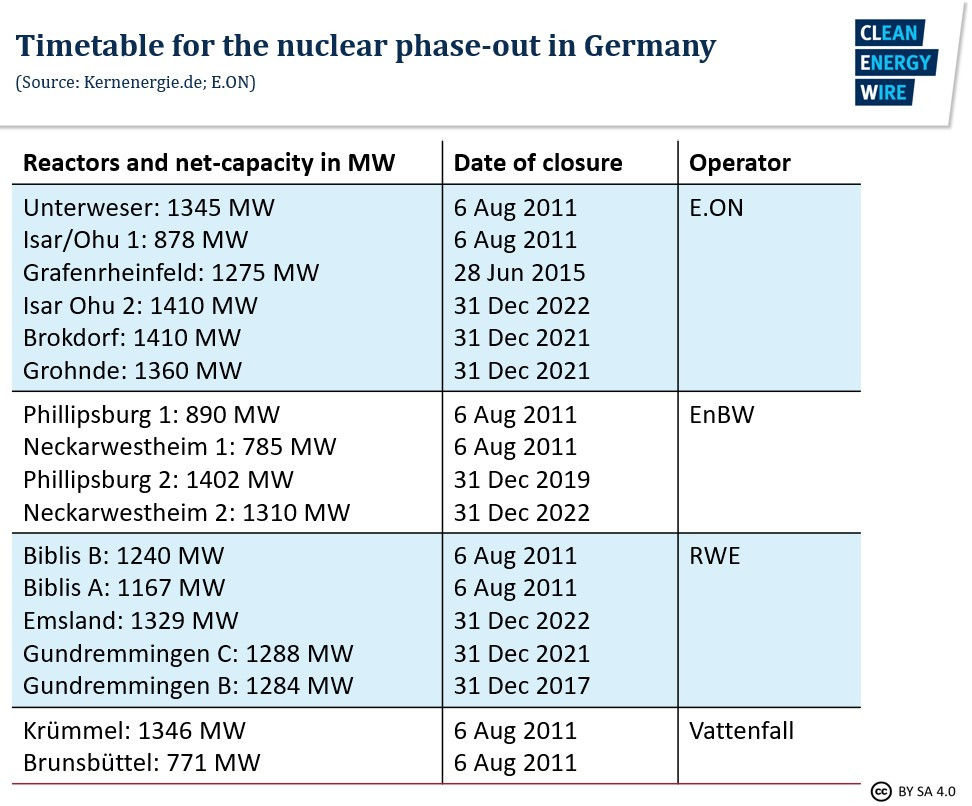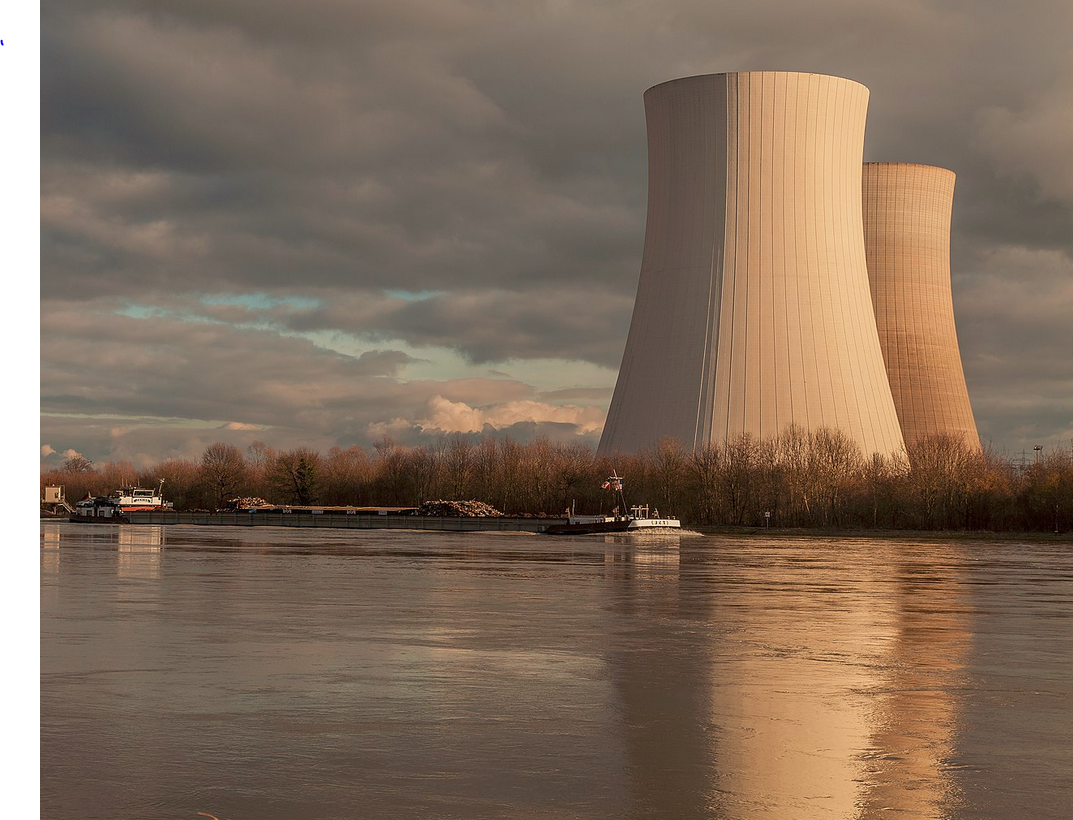Germany pledges to work towards nuclear-free EU on Fukushima anniversary
Ten years after the Fukushima nuclear disaster in Japan, German environment minister Svenja Schulze insisted that the country does not consider nuclear energy an option for low-carbon power production. "Nuclear power is neither safe nor clean," Schulze said, rejecting the "myth" that the technology could help to find a way out of the climate crisis. "The future is for renewable energy," she said. Germany's phase-out decision, originally taken in the year 2000 and confirmed after the 2011 meltdown of the power plant in Japan, had "brought peace to a social conflict that raged for decades" and helped minimise a major risk at least nationally, Schulze said.
Nuclear power could not be in Germany's interest when it is generated abroad either, "be it in our immediate neighbourhood, in the EU or globally”, the minister said, adding that "our work has not ended with the German nuclear exit”. The environment ministry published a position paper listing 12 key objectives required to reduce nuclear risk even further. They include actions under the three sections of a) completing the German nuclear phase-out: Close nuclear plants, promote final storage, accelerate the expansion of renewable energies; b) reducing nuclear risks in Europe, strengthen cooperation; and c) increasing nuclear safety worldwide, maintain nuclear risk competence and provide appropriate information.
With a view to the decision by Germany's largest neighbour country France to extend the running time of old nuclear reactors, she said that while the "principle of energy sovereignty" would have to be respected, there are "technical and economic limits to retrofitting”. Especially plants near the German border would be "monitored very closely and critically”, the minister said, adding that the German government expected France to enable "comprehensive cross-border cooperation" on the matter. More than half of all EU states do not use nuclear power at all or are considering a phase-out, Schulze said.
"Together with likeminded countries in Europe, I will actively work towards more countries joining the phase-out of nuclear power," she stated. Schulze minister colleagues from Austria and Belgium, Leonore Gewessler and Tinne van der Straeten, joined her German counterpart in a joint message published on Twitter, in which the three state representatives said they will work towards ending the use of nuclear power in Europe and pave the way for an energy system solely based on renewables.

Ten years after the disaster, Japanese officials in Fukushima still grapple with key questions regarding the removal, storage and processing of the plant's nuclear waste. These problems remain unresolved and many former residents are still not allowed to return to their homes, Schulze said. "If we've learned something from all this then it has to be the common goal to protect people from further devastation from nuclear power." For Germany, nuclear power's "residual risk" simply had been too significant to carry on with the technology, she argued. Of the six remaining reactors in the country, three will go offline as planned in 2021 and the remaining three at the end of 2022. A 2019 survey found that 77 percent of people in Germany support the nuclear phase-out and 60 percent also its quick finalisation by the end of next year.
A group of more than 50 civil society and environmental groups backed the government's stance on excluding nuclear energy from Germany's emissions reduction plans, arguing that claims about the technology being "climate neutral" and "environmentally friendly" would be "poison for a secure and climate-just future”. In a joint letter, the group including NGOs like Germanwatch, BUND, NABU or PowerShift said nuclear power could have no future in energy systems and called on the government to double down on its efforts to phase-out the technology, including a shutdown of uranium enrichment facilities in Germany and an end of EU nuclear power project funding. Investments instead should flow into renewable power, storage technology and efficiency gains, the group argued.

